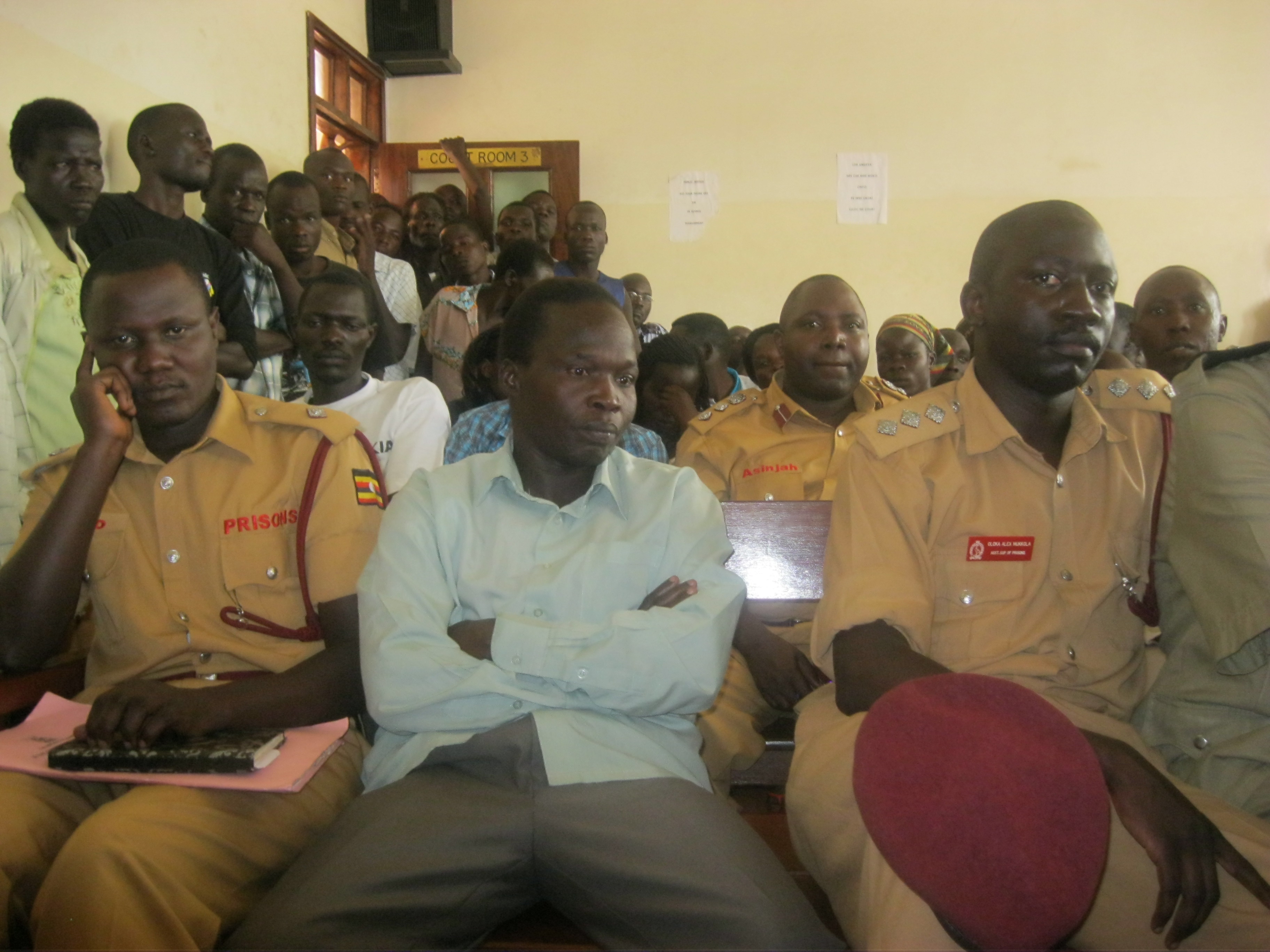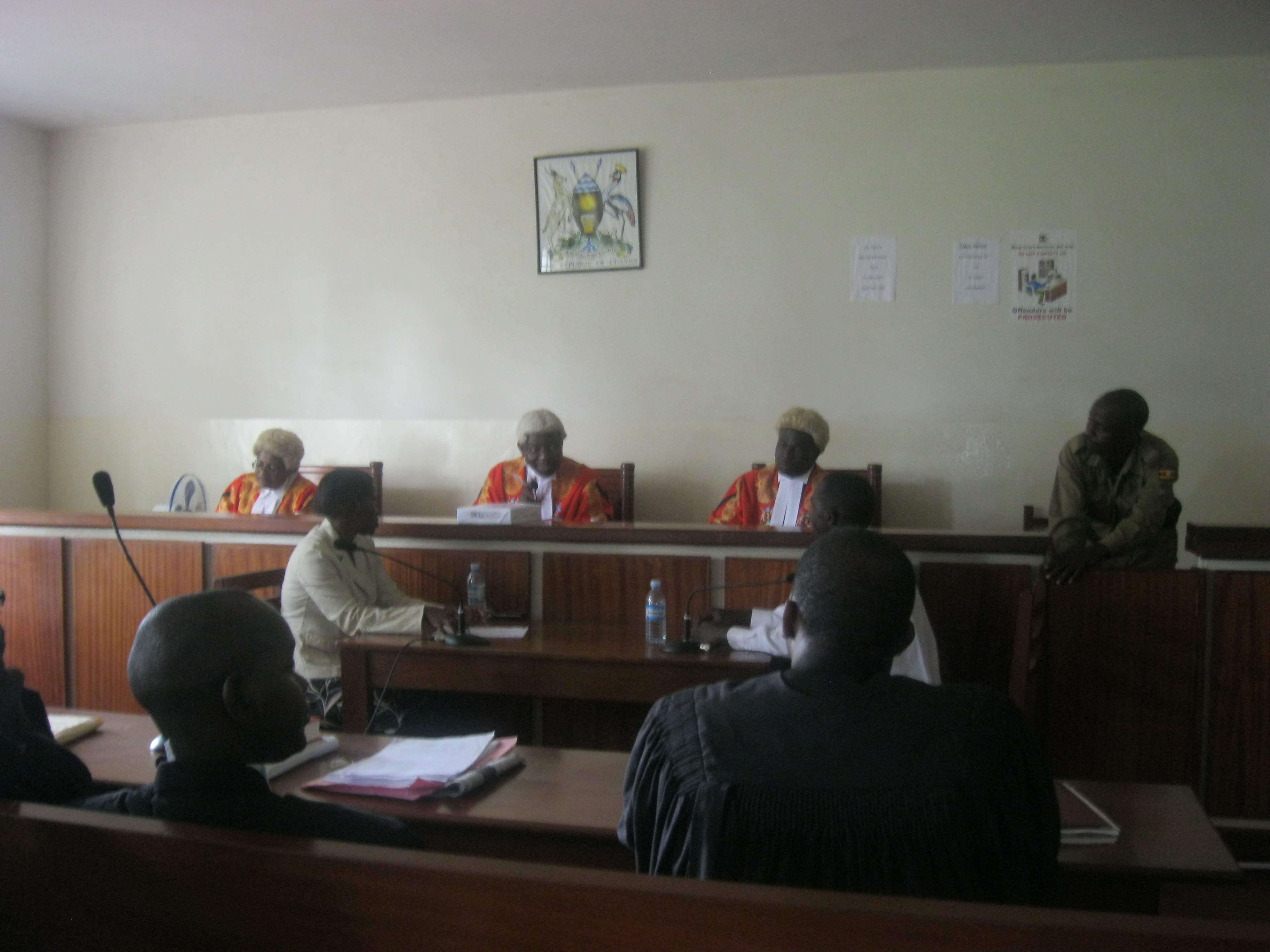Justice in north needs complex solutions, Daily Monitor, 29 Jan 2012
http://www.monitor.co.ug/Magazines/ThoughtIdeas/-/689844/1315470/-/item/0/-/9le52p/-/index.html
By Lino Owor Ogora
In July last year, Thomas Kwoyelo became the first Lord’s Resistance Army (LRA) commander to be charged before Uganda’s International Crimes Division (ICD). He was charged with 53 counts crimes against humanity. On September 22, a few months after the commencement of his trial, Uganda’s Constitutional Court ruled that Kwoyelo was entitled to amnesty in line with Uganda’s Amnesty Act of 2000, and ordered his trial to be halted forthwith, a ruling which was further upheld by the High Court on January 25, 2012.
This court ruling has attracted mixed reactions from national and international actors and the public at large. While some people have applauded the court ruling and amnesty alike, others condemned both.
The case of Kwoyelo, however, re-affirms the fact that the pursuit of justice in northern Uganda requires complex solutions beyond merely dragging ex-commanders of the LRA to the courts of law.
In this regard, it is vital to understand the significance of amnesty in stemming the conflict in northern Uganda, and the complications that come with handling individuals who carry dual victim-perpetrator identities.
Uganda’s Amnesty Act of 2000 offers pardon to ‘any Ugandan who has at any time since January 26, 1986, engaged in or is engaging in war or armed rebellion against the government of the Republic of Uganda’. In northern Uganda, amnesty has been instrumental in fostering the return of thousands of ex-combatants. Until August 22, 2008, the Amnesty Commission’s database indicated 22,930 reporters – 50 per cent of these were LRA reporters.
Success in the air
This is an indication that amnesty has registered a tremendous success. If it were not for amnesty, millions of people would still be living within IDP camps. Thousands more children would have been abducted, and even the Juba peace talks which ushered in the prevailing peace in northern Uganda would not have taken place.
Many critics of amnesty may argue that the amnesty law in northern Uganda is no longer relevant given that the LRA have been subdued. However, if you lived in northern Uganda during the period of the insurgency, or even simply visited an IDP camp at the height of the conflict and witnessed the suffering of the people, you would understand and appreciate the prioritisation of ‘peace first, justice later’ and amnesty. It is because of this prioritisation that northern Ugandans, led by religious and traditional leaders were at the forefront of advocating for amnesty as a crucial factor in ending the conflict.
With the LRA still very much alive and committing atrocities in Central African Republic and Southern Sudan, the amnesty law is still needed. In a situational survey conducted by the Justice and Reconciliation Project (JRP) in December 2011 in Acholi region, more than 90 per cent of the respondents believed that amnesty was still relevant. Therefore, rather than argue for the total nullification of the amnesty law, perhaps the question we need to answer is whether amendments are required to specify clearly which commanders of the LRA should or should not be granted amnesty in the event that they return.
In addition, the case of Kwoyelo also raises complex questions regarding the perpetrators who are victims themselves. Kwoyelo was abducted at the age of 15 from his village of Pogo in Pabo Sub-County in Amuru District. Like other children and youth before him, he was carried off into captivity, trained into a child soldier and rose through the ranks to become a high ranking commander. The fate of adult commanders of the LRA who were abducted as children and turned into the killers they are today has been a topic of substantial discussion.
Having been abducted while young and vulnerable, Kwoyelo was a victim. Having committed crimes after the age of 18, Kwoyelo should be able to take responsibility for his actions. What then should be the fate of such individuals? Many human rights activists have often flatly insisted that on becoming adults, such individuals need to take full responsibility for their actions. Why is it that such human rights activists never talk of holding the government accountable for failing to protect children such as Kwoyelo from abduction in the first place? There is need to consider all these circumstances when dealing with cases such as Kwoyelo’s.
Furthermore, there is need to reflect on why cases of NRA/UPDF perpetrators who committed war crimes during the insurgency are not coming up. In northern Uganda, it is a known fact that all armed parties to the conflict, including state and non-state actors, committed war crimes and crimes against humanity.
Court martials not good enough?
While the Juba Peace Agreement calls for handling state actors through other measures such as military court martials, many people in northern Uganda feel the outcomes of these courts would be highly unpredictable, and could lead to many state actor perpetrators being let off the hook.
Military court martial proceedings are often closed to the public and conducted by the army leadership and the participation of victims is often limited. For these reasons, many people in northern Uganda will continue reiterating their call for prosecution of state actors within the ICD. If charges are not brought against the UPDF, or at the very least investigations into state violations conducted, then DPP, runs the risk of being labeled partial.
Finally, beyond pursuing justice in courts of law, there is need to keep the needs of victims and survivors of the conflict in mind. Victims need reparations, compensation, restitution, and restoration of their livelihoods.
Beyond passing guilty or non-guilty verdicts, courts of law such as the ICD will not cater for these very important needs. For reparations to be effected in a proper and timely manner, Uganda requires a reparations policy, which is currently lacking. All these factors should be taken into consideration for justice to prevail in Northern Uganda.
The author is a researcher with the Justice & Reconciliation Project, an NGO based in Gulu District.
http://www.monitor.co.ug/Magazines/ThoughtIdeas/-/689844/1315470/-/item/0/-/9le52p/-/index.html


